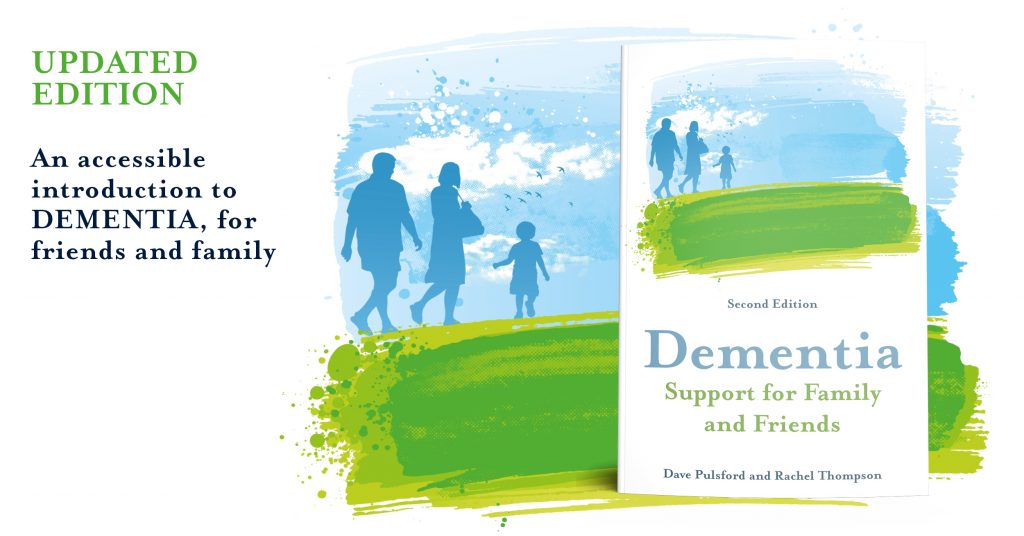In this blog piece Dave Pulsford, co-author of the second edition of bestselling book Dementia – Support for Family and Friends, talks about what it is like to both write about supporting people with dementia and – to use his own words – ‘doing it for real’.
I have worked with people with dementia and their families, on and off, for forty years, as a practitioner, teacher and researcher and I continue to do so now I’m retired. I have sought to pass on some of that experience in the book I co-authored with Rachel Thompson: Dementia: Support for Family and Friends 1st Edition, published by Jessica Kingsley Publishers in 2013. That book received good reviews (it was also included in the Reading Well Books on Prescription Scheme) and a Second Edition, updated, clarified and focused towards a UK readership, has just been published (Jessica Kingsley Publishers, 2019). Despite a lifetime of professional experience, up to now my family life has not been touched by dementia. However, since sending the second edition of our book to the publishers, my wife and I have become main carers for a relative with dementia. So I suddenly find myself having to “do it for real” and apply my professional knowledge to my own family circumstances.
“I have become very aware that the ideas in our book are principles, not rules, and need to be adapted to individual circumstances”
This has not always been straightforward. There is often a mismatch between clean and logical theory and messy reality and even though we have tried to present a “warts and all” picture of looking after someone with dementia, I’m sure that readers of our book have frequently found themselves saying in frustration, “That’s all very well, but…”
In my own case, the main practical issue has been that the person in question lives 200 miles away from us, and wants to stay in the area they are familiar with, necessitating many long trips down the motorway and making it hard to respond quickly to situations. I have become very aware that the ideas in our book are principles, not rules, and need to be adapted to individual circumstances. I have had first-hand experience of how hard it can be to engage services that are resource-starved through austerity and not over-endowed with the ability to communicate with each other. I found myself paradoxically grateful that a crisis occurred, as it was the only way to attract the attention of a dilatory social services department. I have experienced the stress of applying for lasting power of attorney and the awkward feeling of probing into the person’s personal and financial affairs in the interests of ensuring that the bills are being paid.
How much has co-authoring a book on dementia care helped? My wife, a nurse but not a dementia care specialist, has been reading the second edition and says that it is clear and easy to read and has helped her understand the person’s situation better. Knowledge of how dementia affects a person helps us to empathise with the person: to appreciate their perspective on their situation; to explain their actions and to make allowances for their cognitive and memory lapses. We can communicate with the person more effectively. We can pass some of these insights on to other members of the family who may not have such understanding (the family as a whole has been largely dementia-free until now), and can negotiate with professional services from a position of appreciating their perspectives and challenges. Understanding the principles of dementia care has paradoxically enabled us to judge when those principles may not necessarily be appropriate to the person’s specific circumstances and what we should pursue and what we can safely put on the back burner.
Like many family members and friends of people with dementia, we are doing what we can, with what support we can muster and we try to meet the challenges as they arise. We hope the outcome will be that the person can continue to live a safe and fulfilled life and achieve their desire to remain in their home town. Above all, as Rachel and I say in our book, we don’t see the person as “suffering from dementia” but “living with dementia” and we hope we can help them to continue to do so in a positive way.
